Grateful for the opportunities he had back in Venezuela, he opened a musical foundation for vulnerable children and young people in Ecuador.
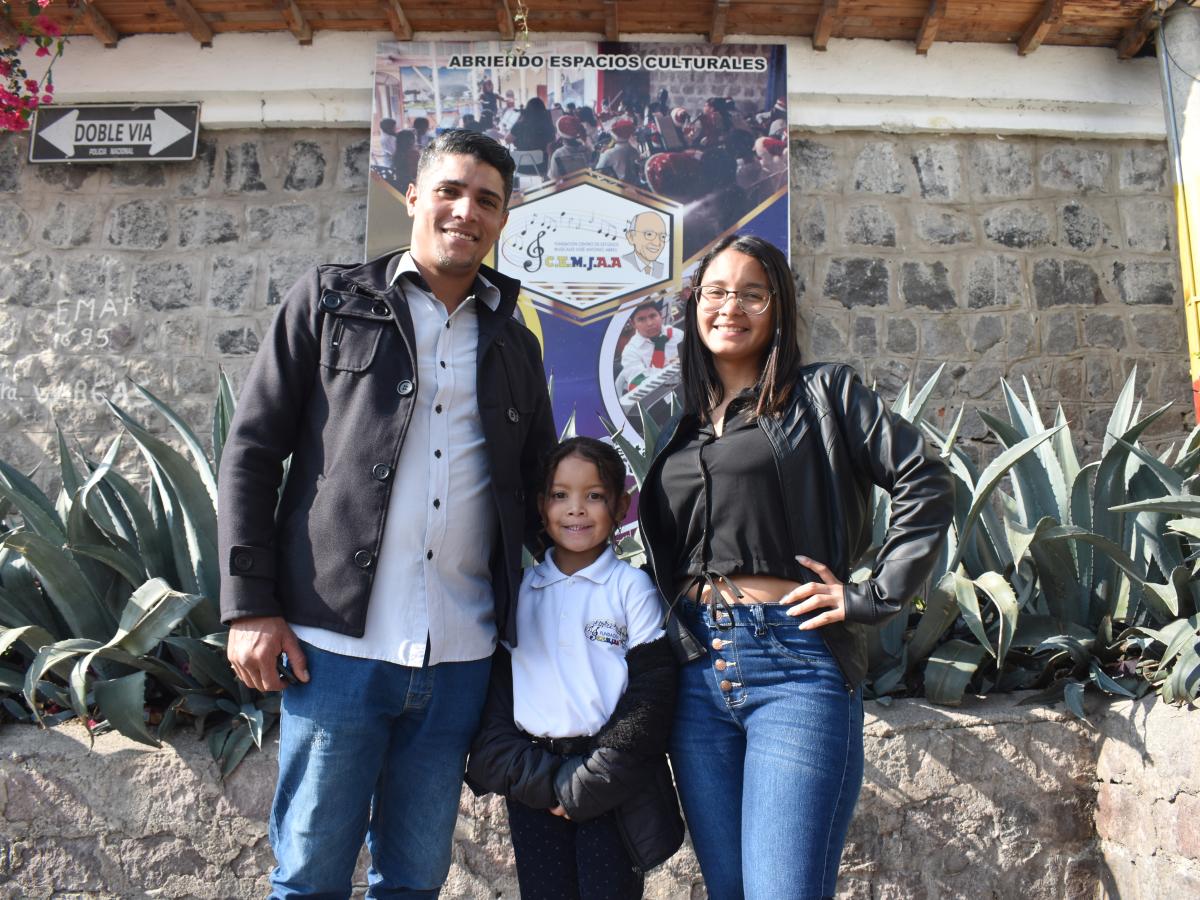
Daniel was an orphan child. He grew up on the streets, without parents. Thanks to his mentor, José Antonio Abreu, the founder of the Venezuelan symphony orchestra, he learned to play the clarinet. Daniel got off the streets as he found a profession in music. He was part of the national system of children and youth orchestras and choirs of Venezuela. Now, he and his wife Mirvic, both have a degree in music education.
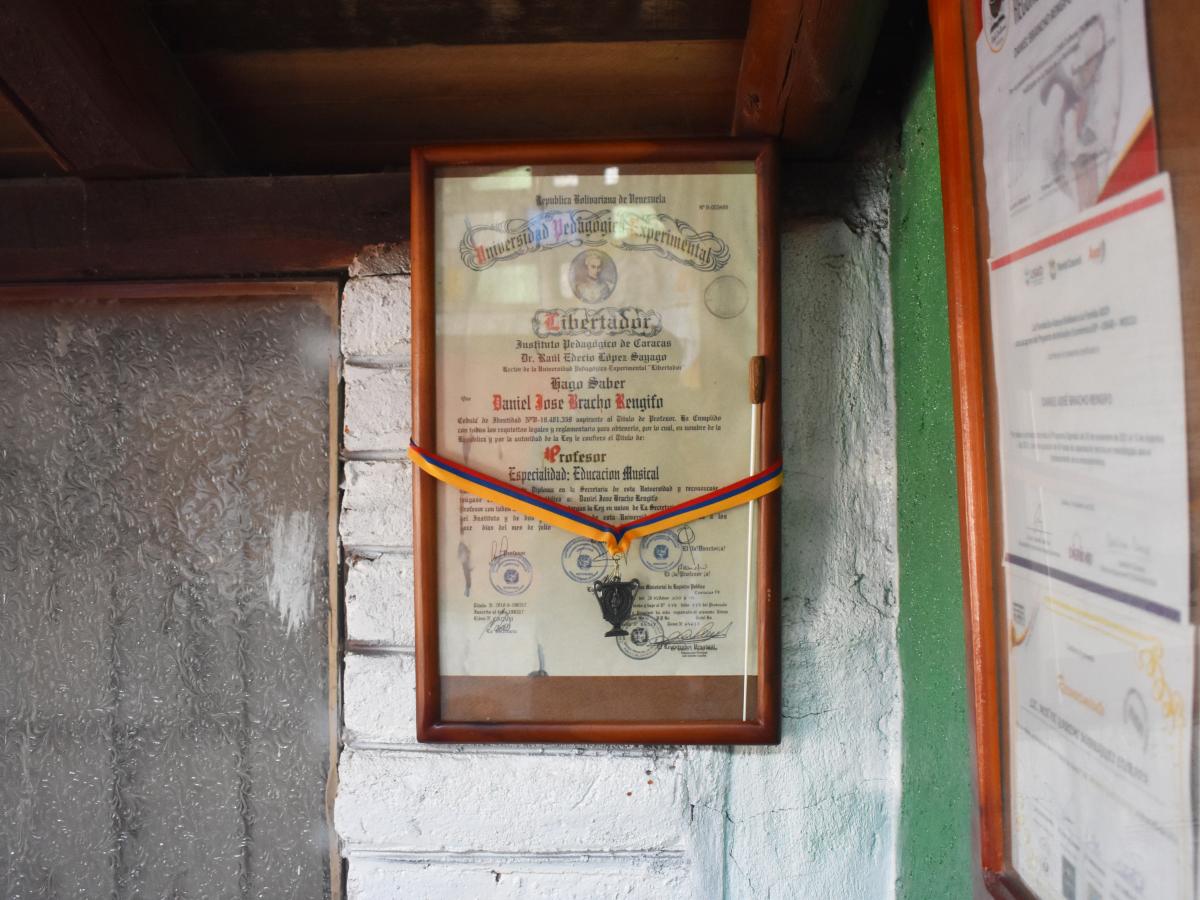
Fleeing Venezuela was not in his plans. He loves his country and shares how he never imagined having to leave. However, the situation did not allow him to contemplate staying. At the end of 2017, Daniel and his wife decided to emigrate to Ecuador in search of a better life for them and their six-month old daughter.
Once again on the street, starting from scratch
“We arrived in Ecuador empty handed, with a suitcase full of dreams.”
Daniel recounts how he and his wife left with nothing. Even though both Daniel and his wife both held degrees, they had to look for work in the informal sector in Ecuador because their degrees weren’t valid in the country. To provide for their baby daughter, they had to take whatever work was available. They worked as waiters, gardeners, painters, and even entertainers at events. They learned skills that they never imagined they would learn. Until one day, Daniel said to himself, “no, no, no, all this was not what I learned, for what I was not born. I have a role and a pattern that I learned and that's what I'm going to do.”
Daniel knew it was going to be a challenge, to pursue his dreams as a musician and teacher in this new country. He also needed support and buy-in from his wife, Mirvic. She was more pragmatic and concerned with the baby's well-being than chasing dreams. It wasn't that Daniel didn't care about his family, but inside his heart he felt a very strong calling. He wanted to follow his passion and work with children and youth to give others similar opportunities to the ones he had.
Opening the foundation
Daniel and his wife Mirvic finally reached an agreement. They decided to open a musical institution. At first, she thought about an academy, but Daniel rejected the idea from the start. He did not want an academy for the elites, he recounts. He wanted a school for everyone, for rich children and poor children, for children with parents and orphan children, for children of any race and nationality. He wanted to open the doors to anyone who wanted to venture into music and would be serious about it.
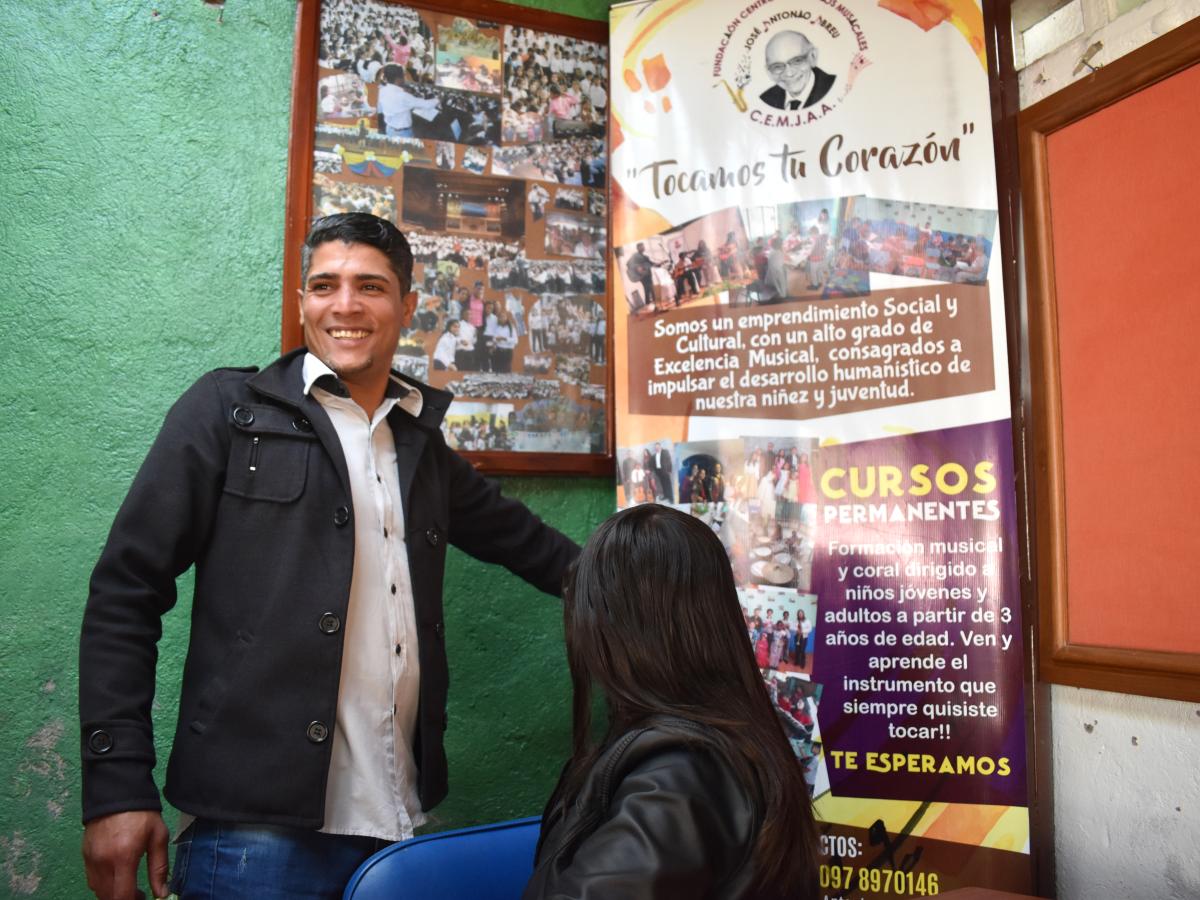
"Maestro Abreu taught me that music and culture are free."
Together, Daniel and Mirvic opened the Centro de Estudios Musicales José Antonio Abreu (CEMJAA) foundation in San Antonio de Pichincha. A well-known pastor generously granted them a space that they could use as a classroom. Daniel and his wife Mirvic repaired old chairs and tables that the pastor donated to them and tried to decorate the place as well as possible. At first, they had six students and were hopeful to attract more. However, the space was less than ideal as it was not finished. Daniel had to install electricity and running water, himself. In their opinion, it was not working in their favor but scaring prospective customers away. They were also working other jobs to provide for the family.
It didn't take long for them to realize that they had to look for a better location. As much as they were confident in their skills as musicians and teachers, they knew they needed a more suitable space, something that had more potential, that wouldn't scare away potential customers thinking their children were not safe.
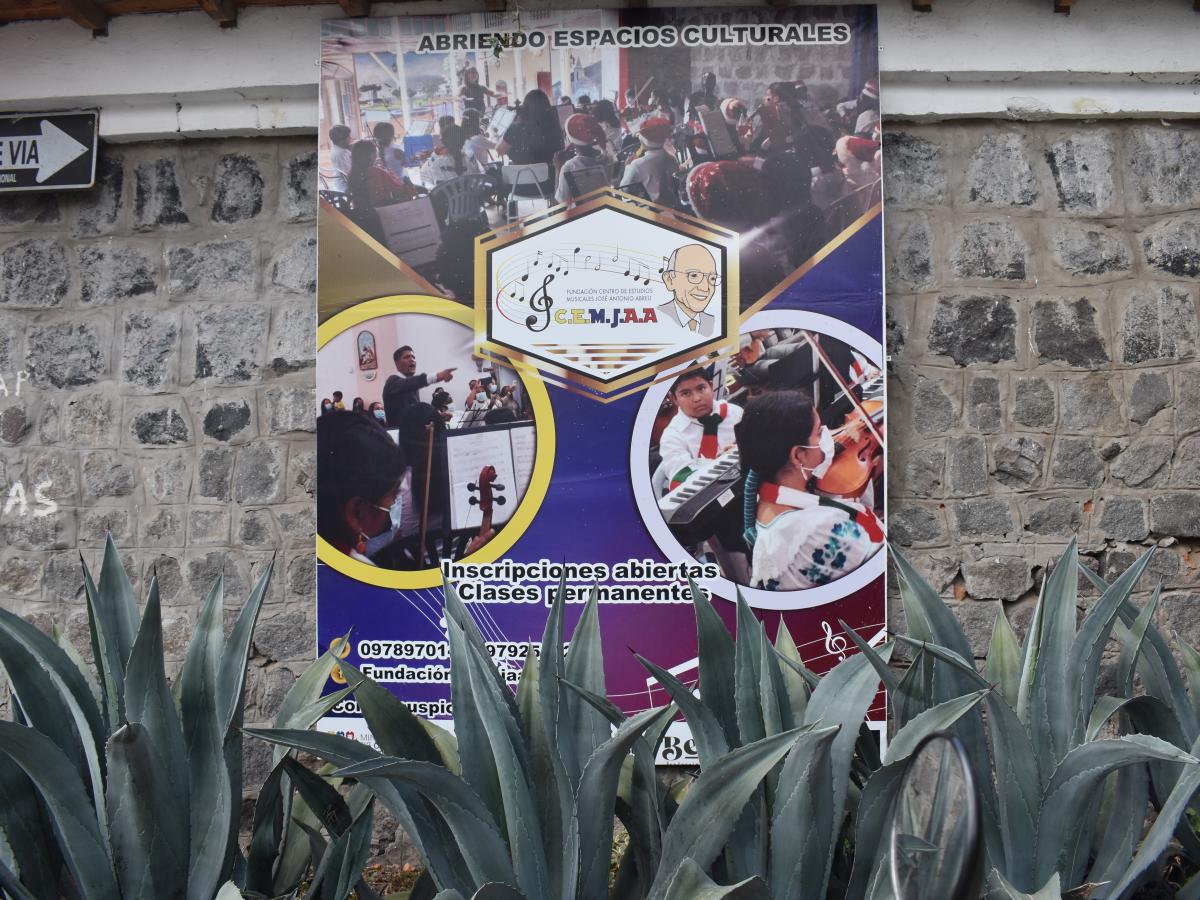
Daniel and Mirvic managed to rent a better place and got to the point where they had plenty of students enrolled and could focus on the school. Everything was finally going well, when suddenly, the COVID-19 pandemic hit. They were left without students and without school. Daniel and his family, and their plans to form a musical institution, were upended once more.
Support from friendly hands
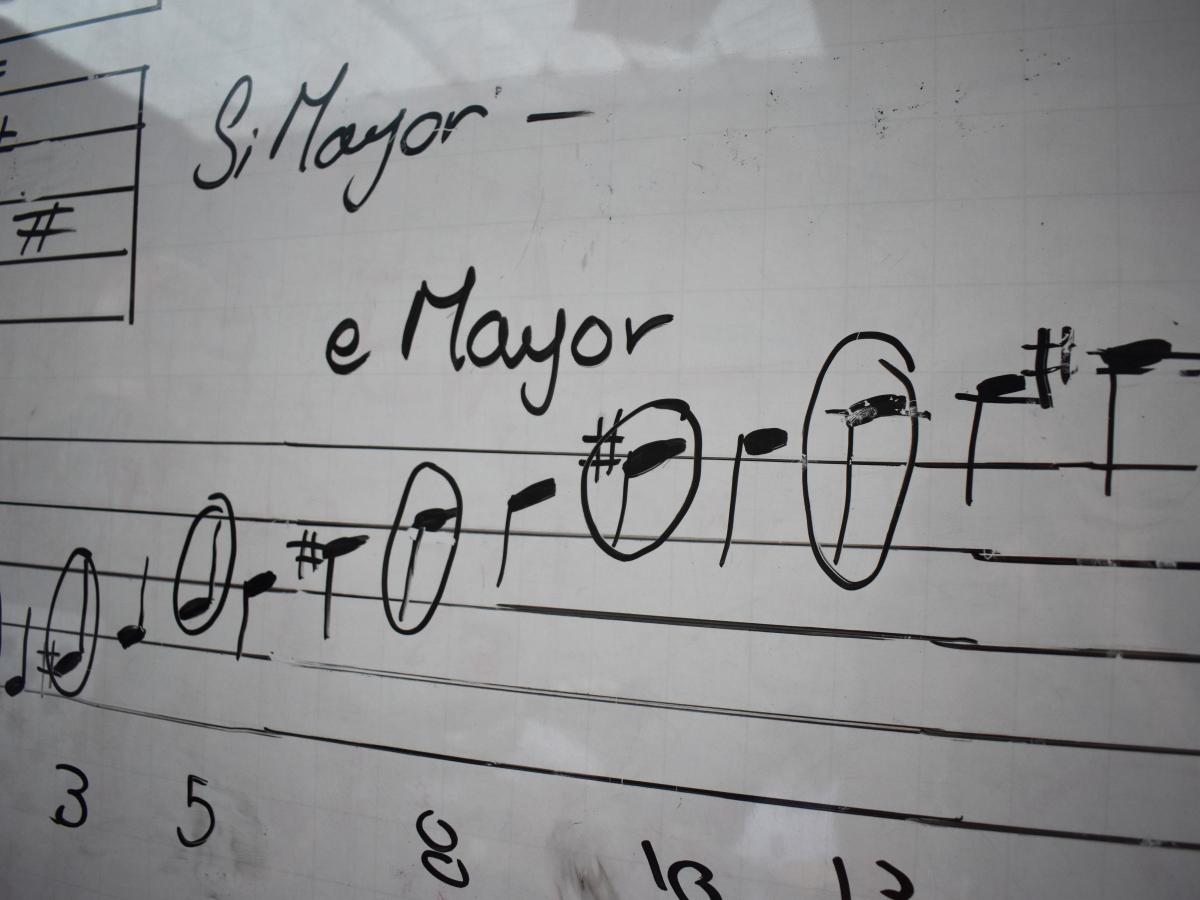
Daniel began looking for options again to continue with his musical dream. Knocking on doors, Daniel met a parish priest from a nearby church in Pomasqui. The priest offered Daniel a large space attached to the church, with spacious rooms and a patio for the children to play.
At the end of 2021, Daniel learned about the United States Agency for International Development (USAID) Economic Inclusion project through the World Council of Credit Unions (WOCCU). Without much thought and drawn by the possibility of accessing seed capital, Daniel applied. His foundation was selected to participate in the project.
Daniel and Mirvic participated in entrepreneurship workshops early in 2022. Through these, they learned how to apply the canvas business model. They also learned about marketing strategies, developing a value proposition, segmenting customers, and being more direct, and straightforward with their sales.
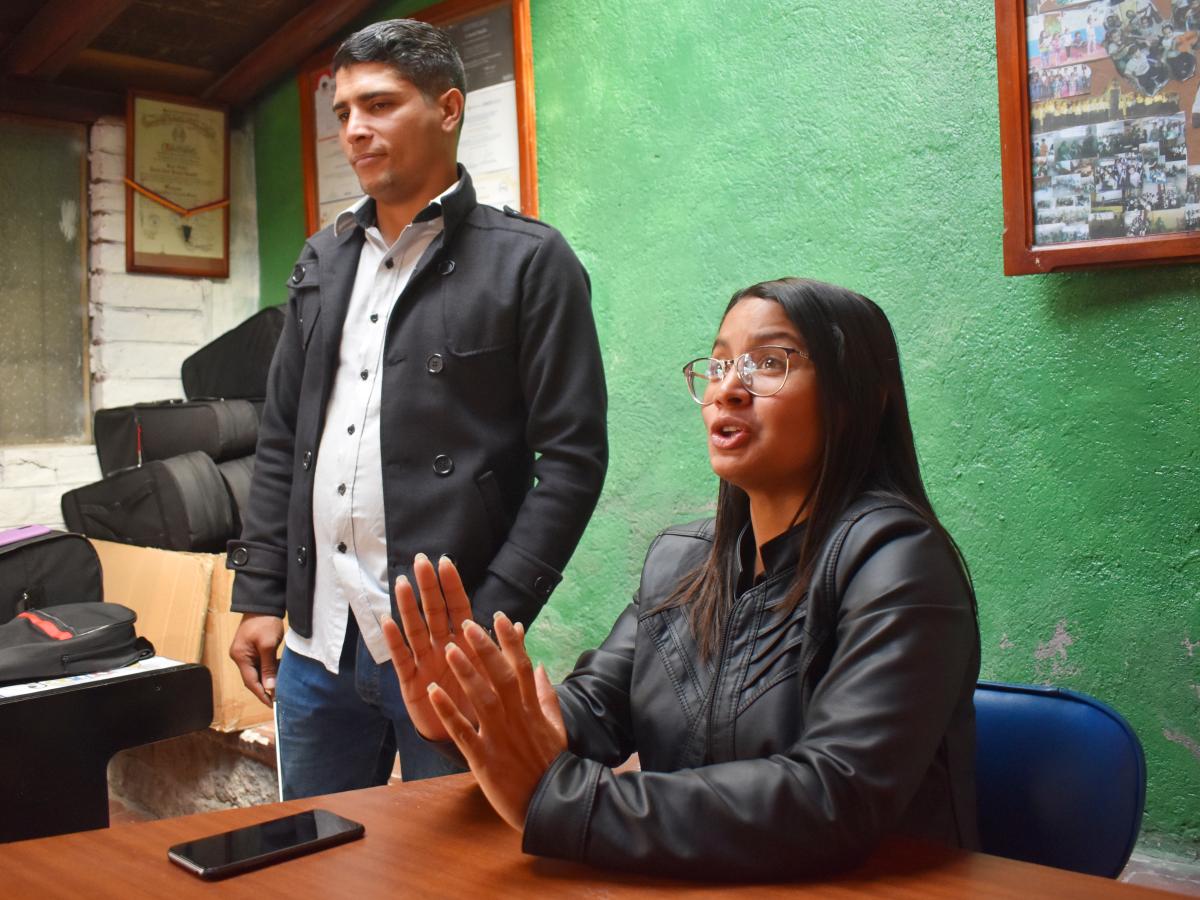
The foundation’s business model was a hybrid between offering courses for profit and offering courses for children on scholarships. This duality posed a real challenge as they developed a formal business plan. Two project advisors worked closely with Daniel and Mirvic to help them develop a business plan and teach them how to use the Business Planning Operational Tool (HOPE). With this tool, Daniel and Mirvic were able to account for their assets and present a clear and concise business plan to financial institutions when applying for loans. The project helped the foundation get its finances in order.
“I thought I knew everything, and well, I was wrong. I learned a lot from the project, especially about managing finances. Because I come from having nothing, I was willing to give it all away to anyone who came asking for help,” says Daniel.
Upon completion of the business plan, the foundation received $5,000 in seed capital through USAID support. With these funds Daniel bought musical instruments to be able to teach 90 children. In 2022, approximately 40 of the 90 children were on scholarships, and of these, 25 were children from an orphanage. Today, the foundation has more than 150 students, hires the services of 17 music teachers, and has opened a second branch.
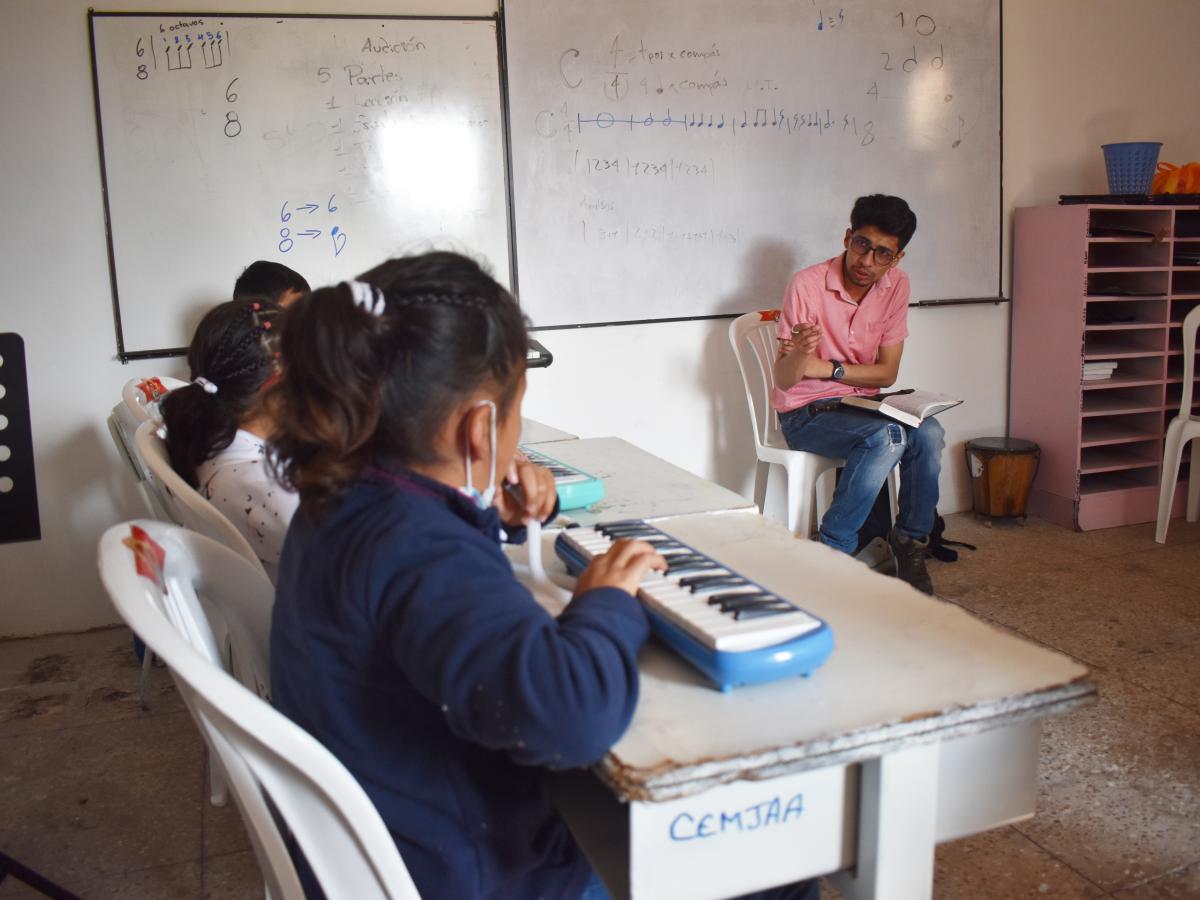
The legacy, the children and youth of today are the men and women of tomorrow
Daniel knows from his own experience that you never know the path life will take you on. He went from being an orphan on the street to being a professional musician able to conduct large orchestras in Venezuela. He never imagined starting a foundation in a foreign country. For this reason, he feels his work and his legacy are with people who, like him, are underprivileged and vulnerable and wish to explore the wonders of playing music. In addition to teaching music, Daniel and Mirvic give love, teach values and a sense of responsibility, and inspire and motivate children and youth. Mirvic assures the foundation is a safe space, where children and youth can be free. They can be who they want to be, as long as they are responsible with their classes and with others.

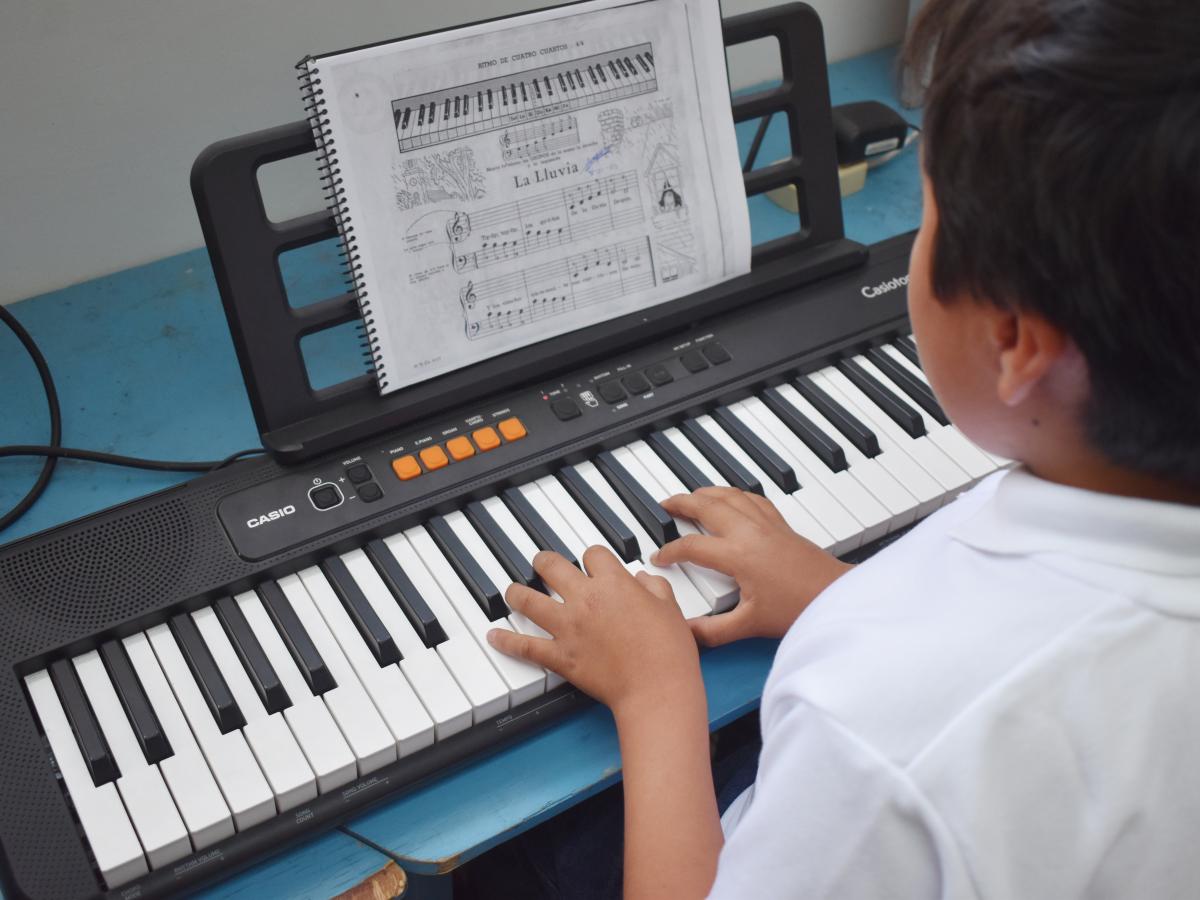
“These children are lacking. Sometimes they need a hug. Many come to us hungry. Here, we give them what we can. I am doing exactly what they did with me, and I intend to do it until the end of my days."
Every young person Daniel sees doing nothing he invites to the foundation - bored at the park, perhaps looking for trouble or smoking cigarettes.
“I prefer to have musical bands rather than criminal gangs. Here, kids are learning a profession and how to be a good human. Here, they are learning to value life. We are creating men and women of tomorrow. We are creating professional musicians, and who knows, perhaps even the best violinist in Ecuador.”
Daniel hopes one day the situation improves back in Venezuela and he and his family will be able to return. He hopes that by then, he can trust one or two of his mentees enough to give them the keys to his foundation. He wishes for someone to continue what he started here in Ecuador.
Grateful to Ecuador
He is very grateful to Ecuador and the other countries in the region that have welcomed hundreds of thousands of Venezuelan migrants and refugees and hopes that the work he is doing for the men and women of tomorrow is a way of giving back to Ecuadorian society.

About this Story
Venezuelans have been forced to emigrate due to dire political and economic conditions at home, and many need help in establishing a new livelihood in their host country. USAID supports the World Council of Credit Unions’ (WOCCU) Economic Inclusion Project. The project improves economic opportunities for Venezuelans and Ecuadorians through activities that support labor market insertion, strengthen microenterprises, and facilitate access to financial services.
USAID has supported over 40,000 Venezuelans and Ecuadorians in their efforts to launch and expand their businesses.
Photos by the World Council of Credit Unions Ecuador
Narrative by USAID/Ecuador
Geotag/Location: Quito, Ecuador
